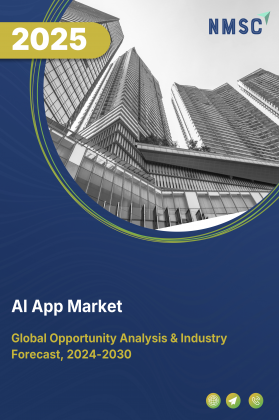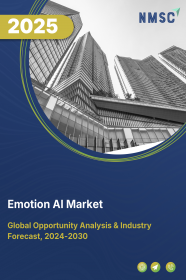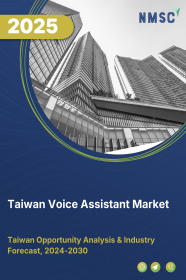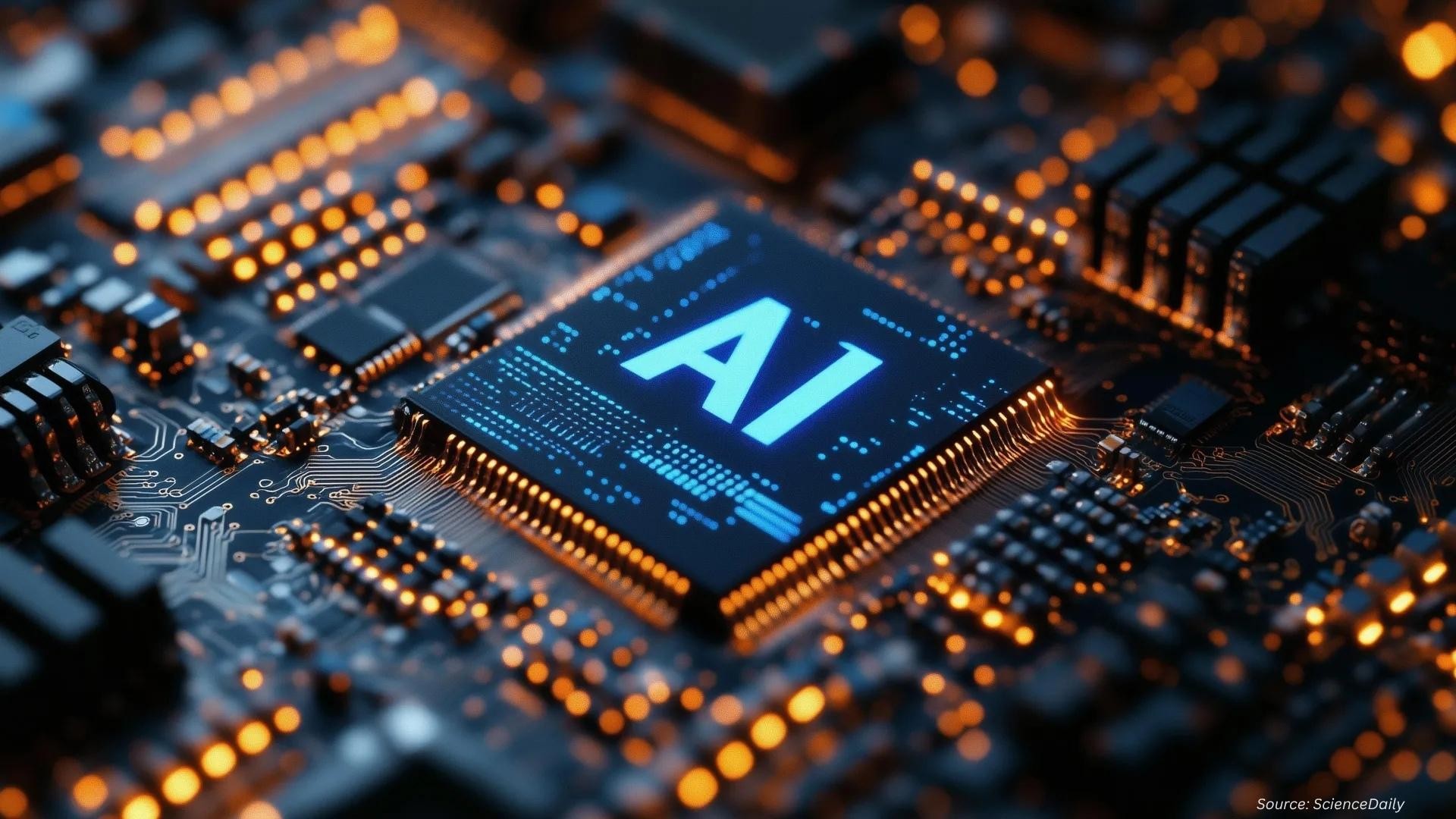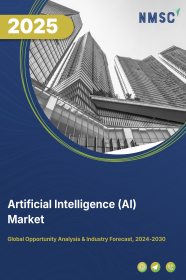
Artificial Intelligence (AI) Market by Solution (Hardware, Software, and Services), by Technology (Deep Learning, Machine Learning, Natural Language Processing (NLP), Computer Vision, Context Aware AI, and Generative AI), by Function (Marketing & Sales, Human Resources, Finance & Accounting, Operations & Supply Chain, and Other Business Functions), by Enduser(Consumer and Enterprise) – Global Opportunity Analysis and Industry Forecast, 2024–2030
Industry: ICT & Media | Publish Date: 30-Jun-2025 | No of Pages: 513 | No. of Tables: 393 | No. of Figures: 278 | Format: PDF | Report Code : IC524
Market Overview
The global Artificial Intelligence (AI) Market size was valued at USD 224.41 billion in 2024 and is predicted to reach USD 1236.47 billion by 2030, registering a CAGR of 32.9% from 2025 to 2030.
Artificial Intelligence (AI) stands at the forefront of technological innovation, reshaping industries, revolutionizing processes, and redefining the way we interact with technology. This cutting-edge field of computer science focuses on developing intelligent machines capable of simulating human cognitive functions such as learning, problem-solving, and decision-making.
From self-driving cars and virtual assistants to predictive analytics and medical diagnostics, AI's applications are diverse and far-reaching, promising to transform the way we live, work, and engage with the world around us. As AI continues to advance rapidly, its potential to drive progress and shape the future is both exciting and profound.
Rising Adoption of AI in Healthcare Unlocks Market Expansion
In 2025, the healthcare sector is witnessing a significant surge in AI integration, revolutionizing both clinical and administrative operations. AI technologies are being employed to enhance diagnostic accuracy, personalize treatment plans, and streamline workflows. For instance, AI-driven tools are assisting in medical imaging analysis, enabling early detection of diseases, and supporting clinicians in decision-making processes. Additionally, AI is optimizing administrative tasks such as electronic health record (EHR) management and billing processes. The adoption of AI in healthcare is further accelerated by the pressing need to address workforce shortages and improve patient outcomes .
Accelerating Use of Deep Learning and Neural Networks Fuels AI Market Growth
Deep learning and neural networks remain pivotal to AI’s evolution, enabling machines to process complex patterns for tasks like natural language processing, computer vision, speech recognition, and autonomous systems. These technologies mimic the brain’s layered learning structure, delivering high-precision results across industries.
Automotive companies use deep learning for real-time object detection and navigation in autonomous vehicles, while healthcare applies it to diagnostics and personalized treatment. Financial institutions rely on it for fraud detection and risk management.
With the rise of transformer models, advanced AI hardware, and widespread adoption of open-source frameworks like TensorFlow and PyTorch, deep learning has become more scalable and efficient. As organizations pursue automation and data-driven strategies, deep learning continues to be a key engine driving AI market growth.
Talent Shortage and Lack of Standardization Hinder AI Market Advancement
Despite the rapid growth of AI technologies, the market faces significant challenges due to a shortage of skilled professionals and the absence of standardized frameworks. The demand for AI expertise has surged, with 63% of recruiting leaders finding AI talent harder to hire compared to other tech roles. This talent gap is exacerbated by the fast-paced evolution of AI, outstripping the capacity of educational institutions to supply adequately trained professionals. Moreover, the lack of standardized protocols for AI development and deployment leads to inconsistencies, increased costs, and potential ethical concerns. Addressing these issues requires concerted efforts in education, cross-functional collaboration, and the establishment of industry-wide standards.
Growing Adoption of Intelligent Robotics Boosts AI Market Potential in Manufacturing
The manufacturing sector is increasingly embracing intelligent robotics, integrating AI to enhance productivity, precision, and flexibility. AI-powered robots are being deployed for tasks ranging from assembly line operations to quality control, enabling manufacturers to optimize processes and reduce operational costs. For example, Hyundai's new electric vehicle (EV) factory in Georgia utilizes advanced robotics and AI to streamline automation, reflecting a broader industry trend towards intelligent manufacturing. This shift not only addresses labor shortages but also positions manufacturers to meet the demands of a rapidly evolving market, thereby expanding the potential of the AI industry.
North America Predominant the Global AI Market Share
North America maintains its leading position in the AI market, poised to sustain dominance due to factors such as increased AI integration in healthcare, driving advancements in drug delivery and digital health. In 2024, NVIDIA introduced over 24 enterprise-grade AI microservices at GTC, targeting healthcare with innovations in imaging, natural language processing, and drug discovery workflows, signifying a significant leap in healthcare technology.
Moreover, the rising emphasis towards utilizing AI into defense industry is fueling the demand for the market across the region. As an example, Pentagon announced to allocate USD 17.2 billion for science and technology projects in fiscal 2025, prioritizing AI, space, and integrated sensing.
The Undersecretary of Defense for Research and Engineering, identifies 14 critical technology areas crucial for military modernization, with trusted AI and autonomy, space, and integrated sensing receiving the bulk of funding. This investment underscores the Pentagon's commitment to leveraging advanced technology for enhancing military capabilities.
In addition, the presence of key market players, such as Alphabet Inc., Nvidia Corporation, Intel Corporation, and Amazon Inc., have adopted various strategies to expand their businesses and drive the AI market demand. Notably, Nvidia introduced Clara Holoscan MGX, an AI computing platform tailored for medical devices, ensuring compliance with essential regulatory standards for the development and deployment of real-time AI applications.
Asia-Pacific Region Witnesses Substantial Growth in the Global AI Industry
Asia-Pacific shows steady AI market growth owing to the growing adoption of AI in retail & e-commerce for enhanced personalization, leveraging recommendation systems and chatbots, to improve customer experiences and drive loyalty.
In 2024, Rakuten Ichiba launched Rakuten AI University, offering video-based e-learning resources to its 57,000 merchants. This initiative aims to seamlessly integrate AI solutions into daily business operations, with a focus on leveraging the RMS AI Assistant (Beta) for enhanced efficiency and store management.
Moreover, the rising integration of AI in BFSI for enhanced risk management and fraud detection capabilities, utilizing machine learning algorithms to analyze real-time financial data and mitigate risks effectively boost the AI market. For instance, HSBC Introduced AI-driven structured product for private banking clients in asia that leverages IBM Watson's AI engine for resilient returns in dynamic market conditions.
Additionally, the adoption of AI by government agencies to boost efficiency and automation in administrative processes. Government bodies are leveraging AI technologies to streamline workflows, improve service delivery, and make data-driven decisions, all with the aim of enhancing the overall effectiveness of governance. Notably, Asian governments are actively working towards achieving interoperability in their artificial intelligence (AI) governance frameworks, aiming to streamline the regulatory landscape and foster a more cohesive approach to AI development and deployment across the region.
Competitive Landscape
The promising key players operating in the global AI industry include NVIDIA Corporation, Microsoft Corporation, Amazon Web Services, Inc., Google LLC, IBM Corp., Advanced Micro Devices, Inc., Oracle Corporation, Intel Corporation, OpenAI, Inc., Baidu, Inc., Qualcomm Incorporated, Hewlett Packard Enterprise Company, Alibaba Cloud Computing Ltd., Huawei Technologies Co., Ltd., Salesforce, Inc., Meta Platforms, Inc., SAP SE, Cisco Systems, Inc., SAS Institute Inc., Siemens AG, Databricks, Inc., iMerit Technology Services Pvt Ltd., Centific Global Solutions, Inc., Quantiphi, Inc., Tiger Analytics, LLC, TELUS International (Cda) Inc., Innodata Inc., Fractal Analytics Pvt. Ltd., Sama Group, Inc., C3.ai, Inc., and among others.
These players are engaged in various investment, collaboration, and product launching across various regions to maintain their dominance in the global AI market. For instance, in May 2024, Microsoft announced to invest USD 2.2 billion to drive Malaysia's cloud and AI transformation, focusing on digital infrastructure, AI skilling, and cybersecurity enhancements. This significant investment aims to boost Malaysia's digital capabilities and position the country for growth in the global tech landscape.
Also, in March 2024, NVIDIA launched generative AI microservices for developers to create and deploy generative AI copilots across NVIDIA CUDA GPU installed base. It aims to create and deploy custom applications on their own platforms while retaining full ownership and control of their intellectual property.
Moreover, in February 2024, IBM and Wipro collaborated to provide enhanced AI services and assistance to customers, fostering the development of integrated and enterprise-ready AI solutions through their expanded partnership.
In addition, in February 2024, Google rebrands its AI services as Gemini, introducing a free version and a USD 20/month advanced subscription accessible through a new app. Dubbed "Ultra 1.0," the advanced AI technology offers tutoring, programming tips, and content generation, aligning with Google's focus on expanding AI capabilities on smartphones alongside recent Pixel and Samsung Galaxy releases.
Artificial Intelligence (AI) Key Market Segments
By Solution
-
Hardware
-
Processor
-
Graphics Processing Unit (GPU)
-
Central Processing Unit (CPU)
-
Field Programmable Gate Array (FPGA)
-
Application-Specific Integrated Circuit (ASIC)
-
-
Memory
-
Double Data Rate (DDR)
-
High Bandwidth Memory (HBM)
-
-
Networking Hardware
-
NIC/Network Adapters
-
-
Interconnects
-
Storage
-
-
Software
-
Digital Assistant & Bots
-
Machine Learning Frameworks
-
No Code/Low Code ML Tools
-
Computer Vision Platforms
-
Data Pre-Processing Tools
-
Business Intelligence & Analytics Platforms
-
Developer Platforms
-
Other AI Software
-
-
Services
-
Core Data Services
-
Data Collection & Ingestion
-
Data Processing & Transformation
-
Data Storage & Management
-
Security & Privacy
-
Data Governance & Quality Management
-
Data Integration & Interoperability
-
Data Annotation & Training Data Services
-
-
-
Integrated Services
-
AI Model Development & Deployment
-
AI Model Optimization & Fine-tuning
-
AI Security & Compliance Services
-
AI Software Development Services
-
Support & Maintenance Services
-
By Technology
-
Deep Learning
-
Machine Learning
-
Supervised Learning
-
Unsupervised Learning
-
Reinforcement Learning
-
-
Natural Language Processing (NLP)
-
Speech Recognition
-
Text Analytics
-
Language Translation
-
Language Generation
-
-
Computer Vision
-
Image Recognition
-
Object Detection
-
Semantic Segmentation
-
Facial Recognition
-
Others
-
-
Context Aware AI
-
Context-Aware Recommendation Systems
-
Multi Modal AI
-
Context-Aware Virtual Assistants
-
-
Generative AI
By Function
-
Marketing & Sales
-
Sentiment Analysis
-
Predictive Forecasting
-
Content Generation & Marketing
-
Audience Segmentation & Personalization
-
Customer Experience Management
-
Other Marketing & Sales Functions
-
-
Human Resources
-
Onboarding Automation
-
Candidate Screening & Recruitment
-
Performance Management
-
Workforce Management
-
Employee Feedback Analysis
-
Other Human Resources Functions
-
-
Finance & Accounting
-
Financial Planning & Forecasting
-
Automated Bookkeeping & Reconciliation
-
Procurement & Supply Chain Finance
-
Revenue Cycle Management
-
Financial Compliance & Regulatory Reporting
-
Other Finance & Accounting Functions
-
-
Operations & Supply Chain
-
AIOps
-
IT Service Management
-
Demand Planning & Forecasting
-
Procurement & Sourcing
-
Warehouse & Inventory Management
-
Production Planning & Scheduling
-
Other Operations & Supply Chain Functions
-
-
Other Business Functions
By Enduser
-
Consumer
-
Enterprise
-
BFSI
-
Banking
-
Financial Services
-
Insurance
-
-
Retail & E-Commerce
-
Transportation & Logistics
-
Road
-
Rail
-
Marine
-
Air
-
-
Government & Defense
-
Healthcare & Life Sciences
-
Healthcare Providers
-
Pharmaceuticals & Biotech Sector
-
MedTech
-
-
Telecommunications
-
Network Operators
-
Telecom Equipment Providers
-
Communication Service Providers (CSPs)
-
Data & Cloud Connectivity Providers
-
-
Energy & Utilities
-
Oil & Gas
-
Power Generation
-
Utilities
-
-
Manufacturing
-
Software & Technology Providers
-
Cloud Hyperscalers
-
Foundation Models/LLM Providers
-
AI Technology Providers
-
IT & enabled Service Providers (ITeS)
-
-
Media and Entertainment
-
Publishing & Journalism
-
Television, Film & OTT
-
Music & Audio
-
Gaming & Interactive Media
-
Advertising & Marketing Agencies
-
Other Media & Entertainment Enterprises
-
-
-
Other Enterprises
By Region
-
North America
-
The U.S.
-
Canada
-
Mexico
-
-
Europe
-
The UK
-
Germany
-
France
-
Italy
-
Spain
-
Denmark
-
Finland
-
Netherlands
-
Norway
-
Russia
-
Sweden
-
Rest of Europe
-
-
Asia-Pacific
-
China
-
Japan
-
India
-
South Korea
-
Australia
-
Indonesia
-
Singapore
-
Taiwan
-
Thailand
-
Rest of Asia-Pacific
-
-
Rest of World
-
Latin America
-
Middle East
-
Africa
-
Key Players
-
NVIDIA Corporation
-
Microsoft Corporation
-
Amazon Web Services, Inc.
-
Google LLC
-
IBM Corp.
-
Advanced Micro Devices, Inc.
-
Oracle Corporation
-
Intel Corporation
-
OpenAI, Inc.
-
Baidu, Inc.
-
Qualcomm Incorporated
-
Hewlett Packard Enterprise Company
-
Alibaba Cloud Computing Ltd.
-
Huawei Technologies Co., Ltd.
-
Salesforce, Inc.
-
Meta Platforms, Inc.
-
SAP SE
-
Cisco Systems, Inc.
-
SAS Institute Inc.
-
Siemens AG
-
Databricks, Inc.
-
iMerit Technology Services Pvt. Ltd.
-
Centific Global Solutions, Inc.
-
Quantiphi, Inc.
-
Tiger Analytics, LLC
-
TELUS International (Cda) Inc.
-
Innodata Inc.
-
Fractal Analytics Pvt. Ltd.
-
Sama Group, Inc.
-
C3.ai, Inc.
REPORT SCOPE AND SEGMENTATION:
|
Parameters |
Details |
|
Market Size in 2024 |
USD 224.41 Billion |
|
Revenue Forecast in 2030 |
USD 1236.47 Billion |
|
Growth Rate |
CAGR of 32.9% from 2025 to 2030 |
|
Analysis Period |
2024–2030 |
|
Base Year Considered |
2024 |
|
Forecast Period |
2025–2030 |
|
Market Size Estimation |
Billion (USD) |
|
Growth Factors |
|
|
Countries Covered |
30 |
|
Companies Profiled |
15 |
|
Market Share |
Available for 10 companies |
|
Customization Scope |
Free customization (equivalent up to 80 analyst-working hours) after purchase. Addition or alteration to country, regional & segment scope. |
|
Pricing and Purchase Options |
Avail customized purchase options to meet your exact research needs. |




















 Speak to Our Analyst
Speak to Our Analyst



